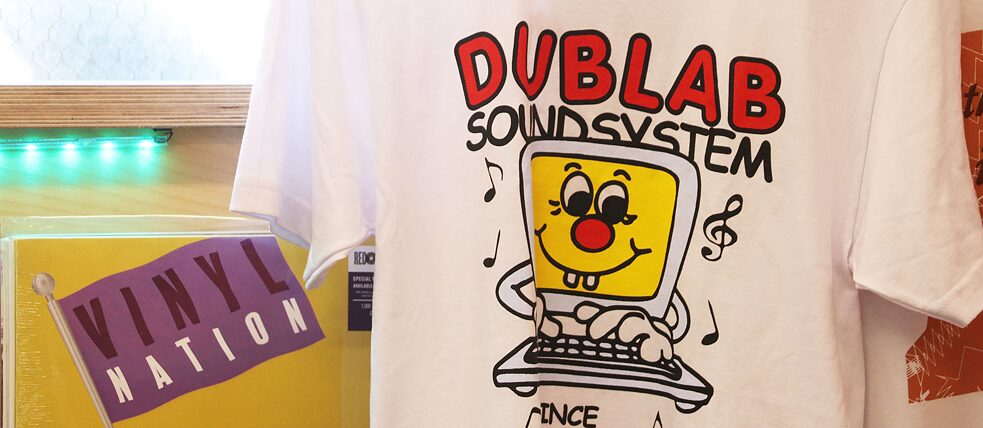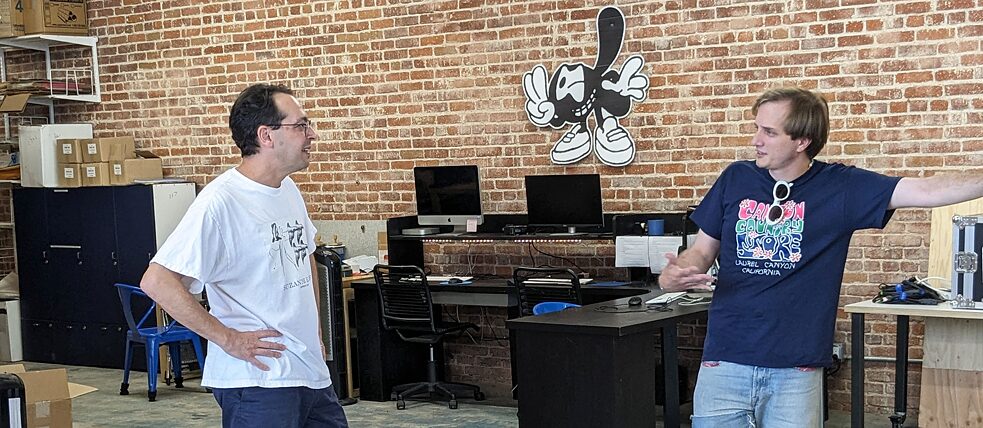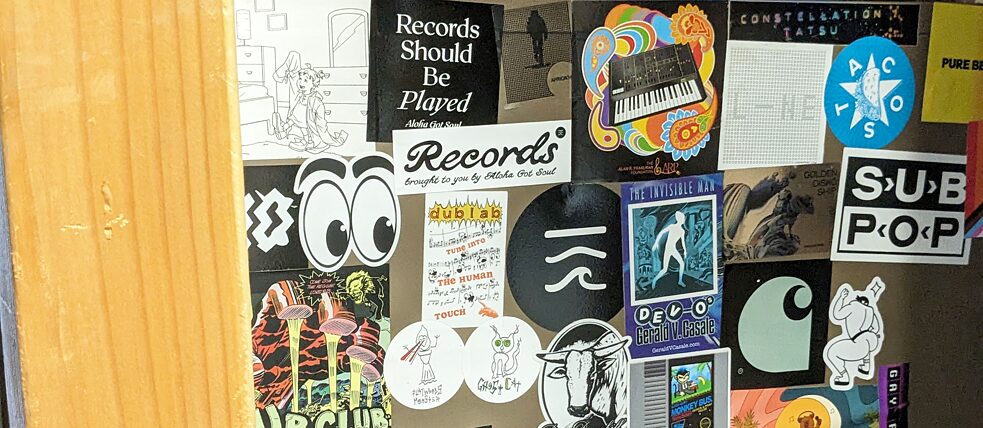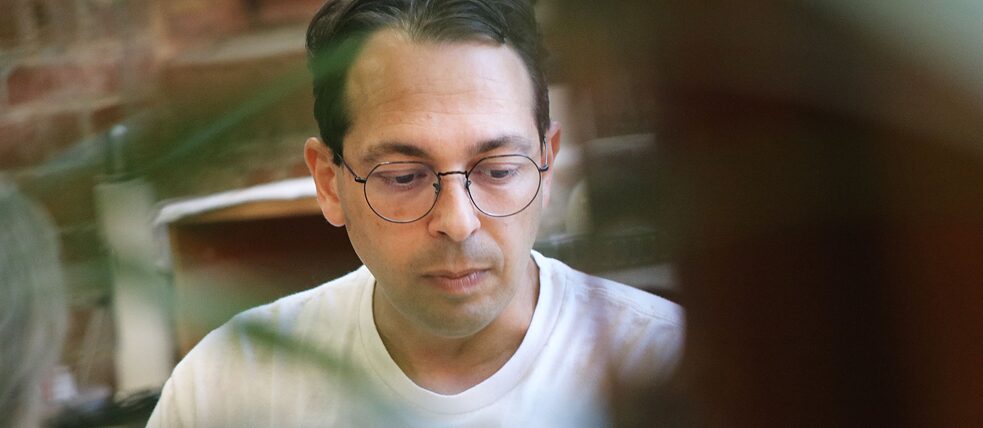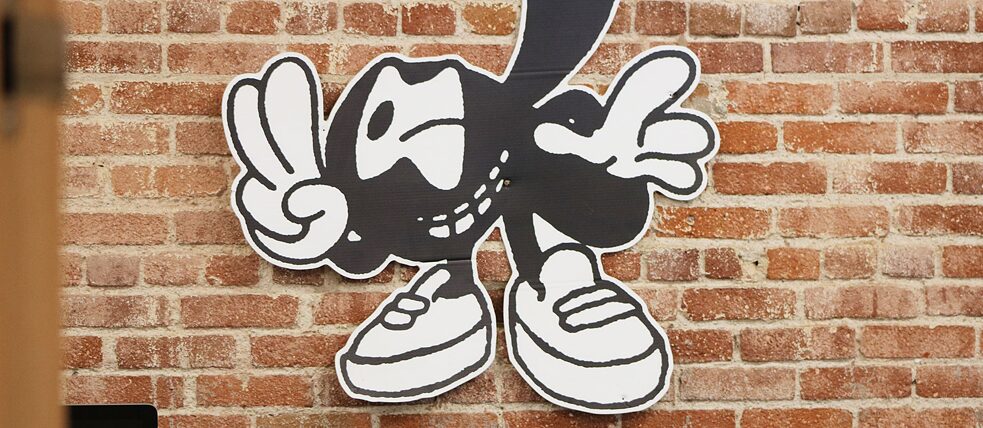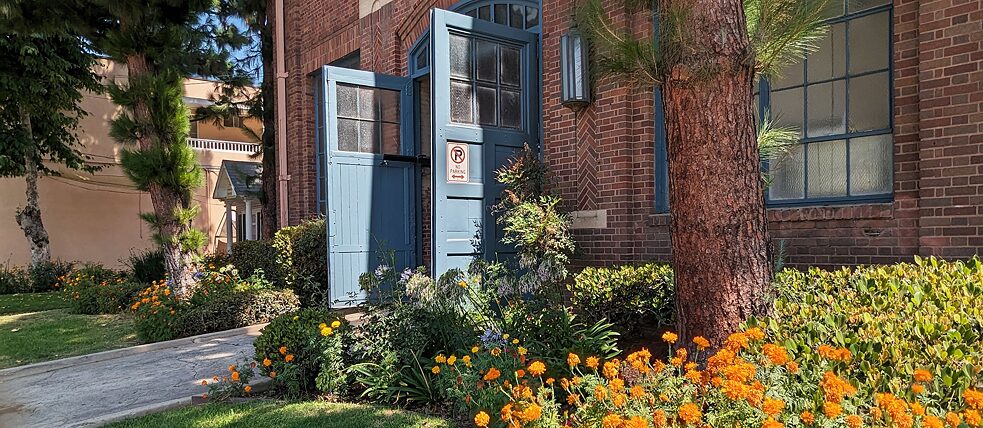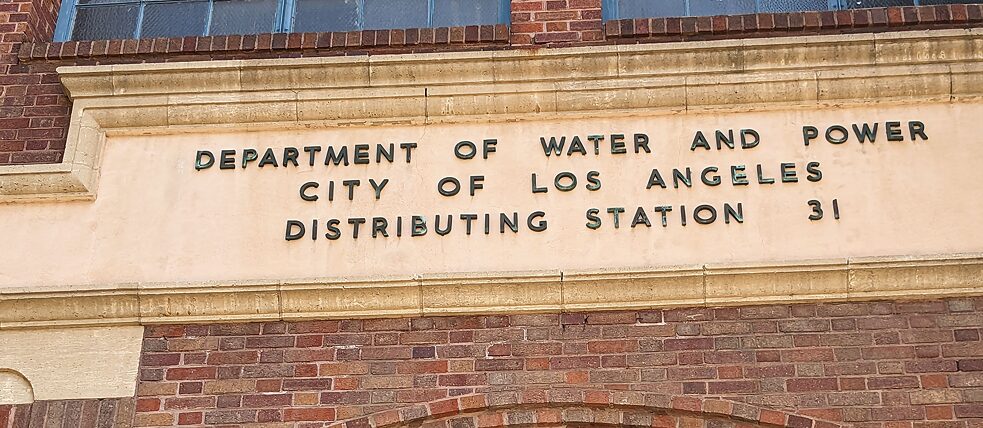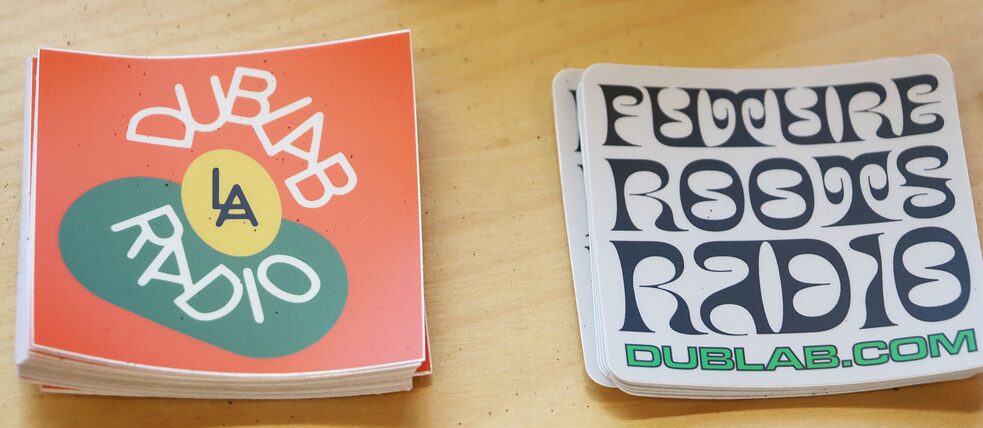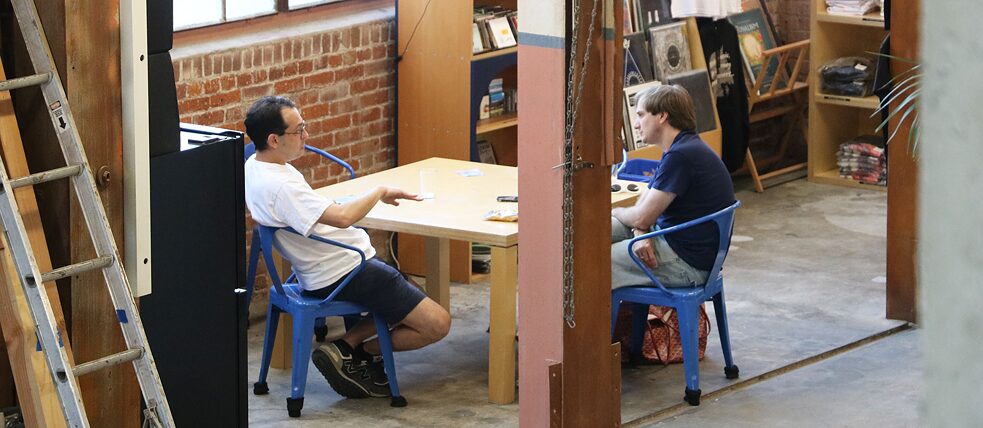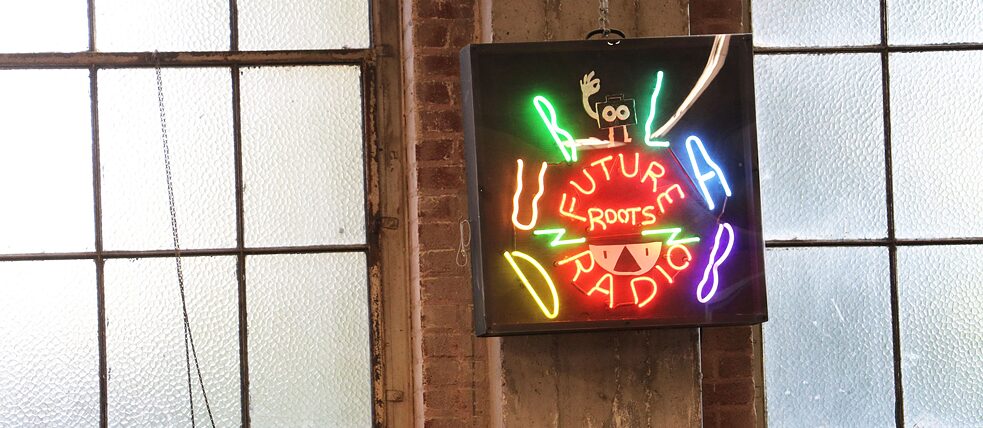Ale Cohen on Dublab
The Sound of Los Angeles
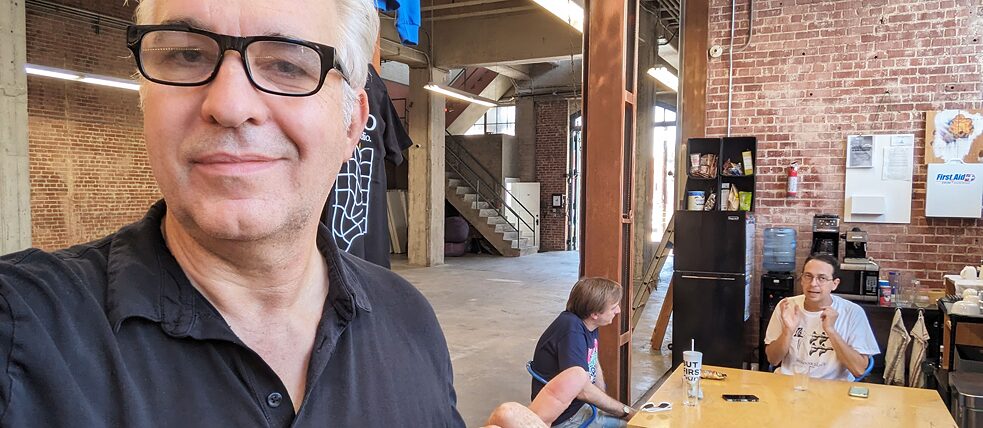
Our colleague Stefan Kloo from Los Angeles has been saying for years that we should definitely do a portrait of the wonderfully extraordinary radio broadcaster, Dublab. Here it is! Sascha Ehlert visited Ale Cohen at the Dublab Studio in Los Angeles. Ale has been involved with Dublab for decades. And Stefan Kloo took photos.
By Sascha Ehlert
Sascha Ehlert: I’d like to work with you to summarise Dublab, the history and the present of your radio station – because I get the feeling that not enough people know about your operation …
Ale Cohen: That’s right – for better, for worse, that remains to be seen – Dublab always managed to swim just below the surface. I like that, there’s something nice about that.
Under what circumstances was Dublab actually started?
Dublab started in 1999 – and to understand why the project came into being, first you have to understand how the landscape of media in the US was structured at the end of the nineties. At that moment the FCC (Federal Communications Commission, one of the agencies under the US Department of Commerce that regulates communications by radio, satellite and cable, ed.) had stripped thousands of community radio stations of their licence, and they were no longer allowed to broadcast. So that means there was a big void in the public media, and it was suddenly almost impossible for people to have access to the airwaves – unless you were a big station. They had forgotten that the airwaves are actually owned by us, the public, because they were really just occupied by the big commercial radio stations.
So Dublab was born out of a necessity to find a place where it was possible to give a voice to the community and to DJs. College radio stations had been doing this for a long time, but many of them lost their licence during that time. Dublab started from the concept of bringing a grass-roots community radio station onto the internet. We also discovered in the late nineties that you could actually broadcast live sound over the internet – an idea that’s so well established today that people don’t even think about it anymore. But back then it seemed quite amazing that you could broadcast a live stream. And that’s how Dublab started.
If you look at the DNA of the station, it’s still based on these ideas from the nineties and the culture of the non-profit college radio stations, which have had a big influence on the subculture for a long time. We have been and still are greatly influenced by radio stations like KPFK, WFMU and KXP, who decades ago created that way of developing and running a community radio station. Our founders used to work for college radio stations before that as well. From this starting point we grew together with the internet, as it were. Just as the internet grew, Dublab kept on morphing, as we carried on experimenting and trying things to see what works.
I know that many other online radio stations have learned from us or have been subconsciously influenced by Dublab – by now there’s a third generation of digital radio stations – and these stations, which were established around 2022 might not even realise anymore that Dublab was one of the pioneers of what they are doing today. And I think that’s amazing.
I was actually part of Dublab from the beginning. Not from the start as a founder, but as one of the artists who formed the station’s first network. In the early days I always used to hang around in the first Dublab studio. The band I played with at the time played a gig for Dublab at some point. Then I started DJing on the station and so on. I didn’t go to college myself, but I DJed on college stations many times.
What kind of music did you make back then?
It was electronic music released on a label called Plug Research (a label that used to feature bands such as Flying Lotus, Exile, Bilal and more). But then I also worked with smaller British and German labels.
What particularly drew you to Dublab at that point?
I learned about Dublab through DJ Hoseh, who continues to be at Dublab today. Then, when I first came to the studio, I immediately felt like I had found my place. I had found my “tribe”. The atmosphere was very relaxed, everyone did their thing, and I immediately felt I could be part of that. There were never any personal ambitions or anything like that, just the feeling that I had met a nice group of people and I wanted to be around them more. And I still feel like that today.
Where was the Dublab radio station based back then?
The place we’re in now is our fourth home in the station’s history. Right at the start we were in the Paramount Studios on Melrose Avenue in a storefront. Then after a few months we moved for the first time, to the same building but upstairs. We stayed there for around three years before moving to Silver Lake, which then remained our home for 18 years. But when during the pandemic the building changed ownership, we moved here to University City, where we’ve been since the start of 2022.
We think there’s still a need for shared space.
Well yes, of course Los Angeles as it was in the late nineties is not the same Los Angeles as in 2023. When Dublab started, it was also inconceivable that radio shows could be created without a professional radio studio. You also need, so they thought at the time, a physical space where people come together and exchange ideas – and from there you project to the world. Also the rents in Los Angeles at the time were very cheap, our first office was very affordable. And all this continued until technology started becoming more affordable, things started shrinking into advanced smartphones and social media, streaming platforms were created – and little by little the idea that you need a physical space to make radio broadcasts slowly started to be eroded.
It was increasingly questioned whether you need people to come together. Particularly because at the same time rents continued to rise, people were increasingly thinking: Hmm, maybe we don’t need to be in the same place at all to create things. After all, we’re much more flexible these days. We don’t need a studio anymore, we can just record on our phones or laptops. Along with this goes the trend that more and more public spaces are disappearing – for various reasons. But that’s not the way we think things should be. We think there’s still a need for shared space, spaces in which a community of artists can come together to create content that is not created in their bedrooms.
I think a place like a radio studio offers something to society that you cannot access through a screen with your thumbs. We’d go so far as to say that our programme, the music you can listen to online, is only half of our mission and role as Dublab. This place, where you and I are meeting, and the other half is what happens here. Maybe one DJ runs into another here, because they both have to record a show on the same day, and this chance encounter results in a productive working relationship.
If you quietly do your thing, it’ll work itself out.
Yes, ultimately that’s true, I think. Of course it’s discouraging sometimes when you see someone babbling nonsense on social media and getting 25 million views, while we’re just a quiet voice that spends countless hours on our radio documentaries and gets maybe 30,000 views. Of course you sometimes think: Oh my God, I could just pull my pants down in front of the camera and get a lot more views, but ultimately I tend to ignore all that – that’s just noise in the background.
I believe that if you quietly do your thing and you have these systems in place and you have this consistency year after year, it’ll work itself out in the end. I believe that quality content goes a long way.
Can you determine the moment when you realised that Dublab is more than a short-term undertaking? When it became apparent to you that you could spend half of your life on this? And also do you still question your decision for this life now?
Oh, I do every day. Financially Dublab was always stable somehow. But pre-pandemic I was personally at a place where I questioned everything a lot. Dublab was kind of coasting, we had just enough money to pay the bills every month, without being quite sure how it was going to work the next month – and I was just tired of that. But in the past few years we have become way more stable, because something happened in the turn of things that put us in a place where I can plan ahead. As a result that daily questioning reflex remains more in the background. That being said, I think there’s something healthy about not feeling quite “settled”, so that keeps the spirit of things alive.
Editor’s note
Dublab’s airwaves allow space for diverse styles, eras, genres and music cultures to co-exist, and DJs are empowered to freely play what they are passionate about, making each show distinct. Their genre bending programming and mission statement “Dublab cultivates and supports local cultural ecosystems worldwide. Through community-generated radio, Dublab promotes curiosity, experimentation, inclusivity, and connection” have resonated with audiences all over the world, extending far beyond Los Angeles. Following the establishment of sister stations Dublab Japan in 2012 and Dublab Spain in 2014, it was a visit by Ale to Germany that persuaded the seasoned online radio maverick Joscha Creutzfeldt to rally German fans and launch the German branch in 2015. Dublab.de has been broadcasting online from Cologne deep into the world ever since, spreading the spirit and values that Dublab has been cultivating over the years. Treat yourself and tune in to dublab.de sometime. You can thank us later.
